All you need to know about buying Real Estate in Galicia
Jesús is a real estate lawyer in Galicia. In this interview, he tells us everything there is to know about buying real estate in Galicia. He tells you about legalities of buying property, he covers the fees and taxes you can expect to pay and sheds light on getting a Spanish mortgage. He also has plenty of personal advice and gives you some recommendations on where to buy property in Galicia (you’ll see his list of Top 5 towns and cities in this post).
Essential reading for anyone looking to move to Galicia.

Name: Jesús Sánchez García
Website: Real Estate Lawyers Galicia
Hi Jesús! You are a real estate lawyer in Galicia. Can you please give me an overview of what you do for clients?
Hello Frank! I like to say that the most relevant aspect is to build trust with the client. When a person changes countries, they are exposed to a lot of changes, including culture, language, and legal regulations. As a lawyer, my job is to ensure that our client fully understands the terms and conditions of the operation they are about to undertake and that it is carried out with all legal guarantees.
More specifically, we advise and represent clients on all matters related to real estate matters, such as contract review and drafting, property due diligence, negotiation with the counterparty, dispute resolution, advice on applicable regulations and taxation.
We also help our clients with other matters, such as obtaining a TIN number, setting up a company or employment contracts.
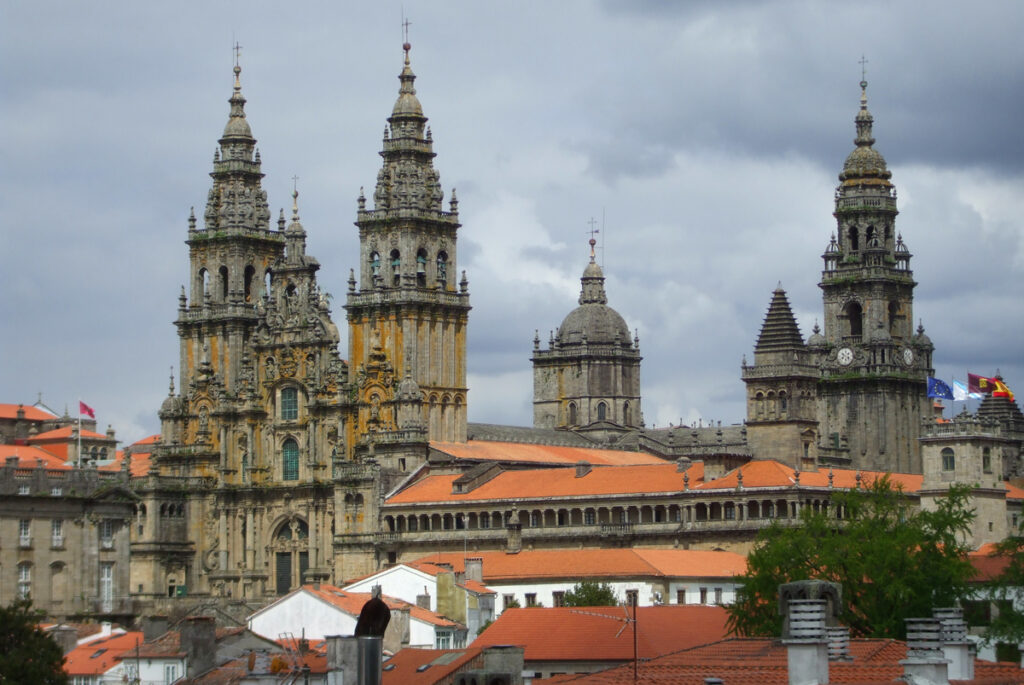
What challenges does buying real estate in Galicia present to foreigners that they might not be familiar with? (ie. if you’re from the UK, US or Canada, what surprises can you expect?)
It is true that when you are buying a property in a foreign country you may find some differences compared to the buying process in your home country. Some challenges you may find could be (i) the buying and selling process; Spain operates through a notary system, property transactions are typically formalized through a notary and once the public deed of the purchase is signed, the new owner must proceed with the registration of the property in the Land Registry (ii) transaction costs and taxes; Spain has various taxes related to property transactions such us the VAT (which applies to the purchase of a new home) or the Property Transfer Tax (which applies to the purchase and sale of a second-hand home) and (iii) the residency requirements; buying a property in Spain doesn’t automatically qualifies you as a resident in the country, therefore it is important to understand the residency requirements and processes in Spain if you plan to stay for long period.
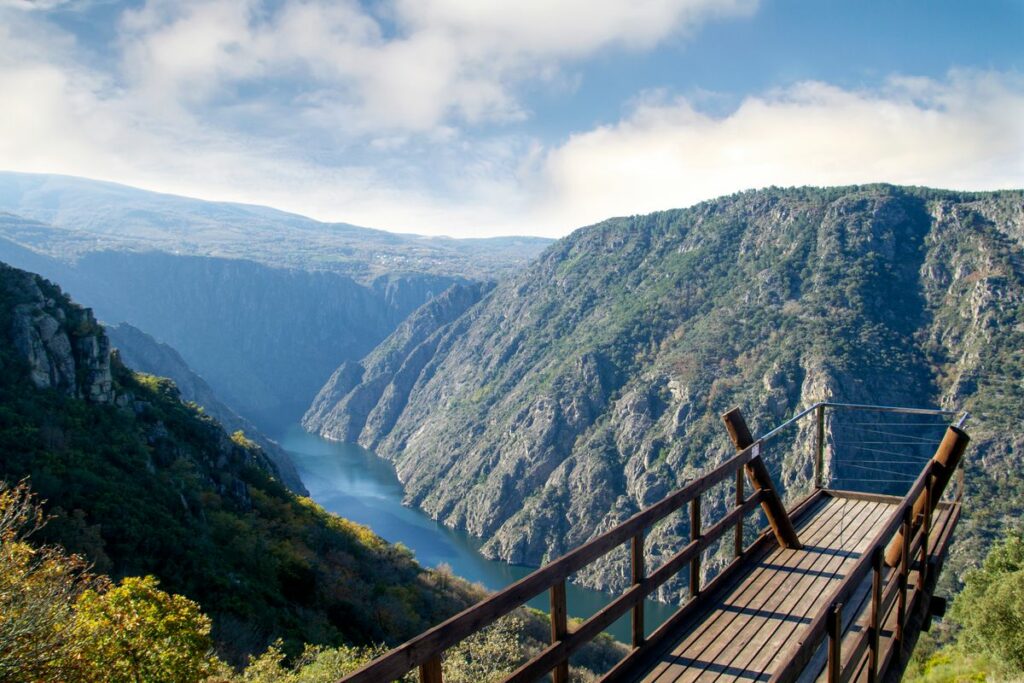
If buying a property in Galicia, what costs should someone expect above the listed price of the house? How much as a percentage on top of the listed price should buyers budget for?
Let me summarise the main costs that a person would incur when buying a property in Galicia:
- Impuesto transmisiones patrimoniales (property transfer tax): which is the tax that should be paid on the transfer of property from one person to another. In Galicia the transfer of property tax rate is 7% over the total price in case the dwelling is used as main residence.
- Actos juridicos documentados: It is a tax related to the formalisation of the notarial documents. In Galicia is 1.5% of the value of the title deed of the property.
- Notary fees: This is the fee that should be paid to the notary for the notarial deed. The fee range could be from 0.2% to 0.5% of the value of the real estate purchased.
- Land Registry Fees: This is the fee to be paid for registering the property in the Land Registry. The property registration fee is usually around EUR 500. It varies depending on the value of the property.
Then we also should consider other expenses, for example, in case we buy a property with mortgage or if we decide to be assisted by a lawyer.
I would suggest the buyers to budget around 13% on top of the listed price.
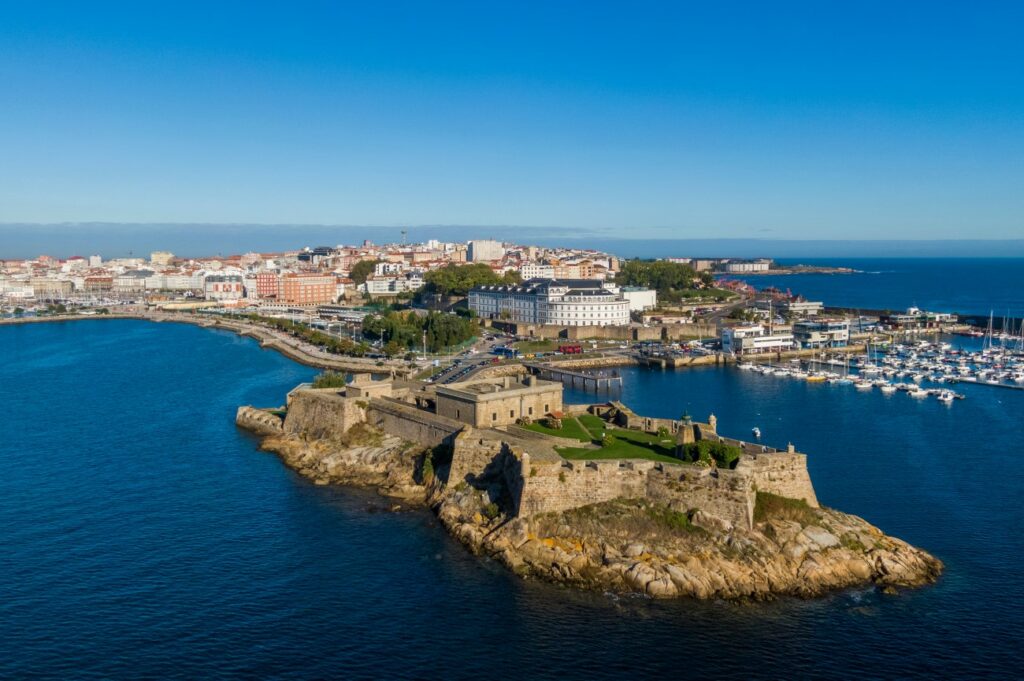
You mention that doing due diligence on a property is something you do. What difficulties arise on the purchase of properties in Galicia that expats should look out for?
Before buying a property, it is important to carry out investigation/research to avoid potential problems in the future. It is key to check for undeclared structural problems in the property, the debts or mortgage loans that could be associated to the property, any previous unknown legal restrictions on construction (in case we want to build), the classification of the land that we are buying, or the discrepancies as to the boundaries of ownership. Possible additional costs, such as unforeseen repairs or taxes, should also be considered as they can help us negotiate a better price.
Are there variations in procedures when it comes to buying real estate in Spain? For example, if one has previously bought real estate in Andalusia, can they expect much the same in Galicia?
The general principles are the same. The main difference lies in the tax rates that may apply depending on the Comunidad Autónoma. For example, the property transfer tax (impuesto de transmisiones patrimoniales) in Galicia is 7% while in Cataluña is 10%. (main residence rates).
Depending on the usage you want to give to the property you are buying you can also find differences in local regulations. For example, renting an apartment via apps like Airbnb will be regulated differently depending on the area in which the property is located.
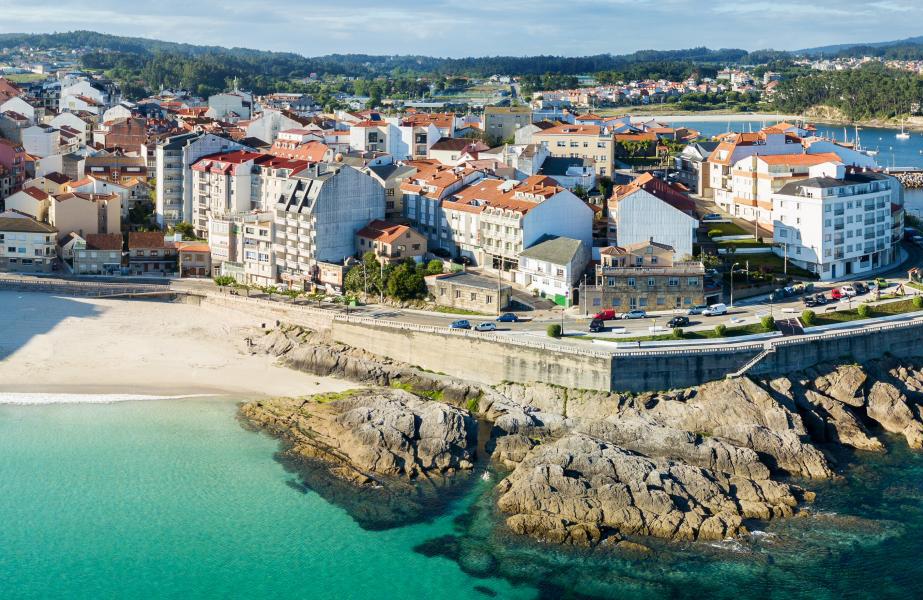
I’ve heard from expats that getting a mortgage in Spain can be complicated. I see that “assistance with mortgage applications” is part of your job description – can you tell us how easy/hard it is for a foreigner to get a mortgage from a Spanish bank?
Yes Frank, indeed. We negotiate with the lending institutions the best possible mortgage conditions for our clients. The ease with which a foreigner can obtain a mortgage in Spain depends on several factors such as the financial situation of the mortgagor, residency status (some banks have different requirements depending on if you are a resident in the country or not), and the specific policies of the bank.
It is true that the process can take up to a month before the mortgage is granted and that the bank will require to provide quite some documentation (NIE, bank statements, copy of the last 3 pay slips…etc) but nothing at the end if you are able to show your financial strength. I would like to stress the importance of checking the mortgage conditions with different institutions as these can vary significantly.
Besides the legal/technical part of your work, you also get a lot of questions from foreigners on what they can expect living in Galicia. What are you most common questions you get?
Indeed, once we initiate our relation with the client, we don’t only advice regarding the legal issues but also other questions that might come like the best areas for living, where to I find English communities to meet people, the best way to integrate into the Spanish culture, best areas and process to set up a business in Galicia, what are the options for international school for kids, how does the health insurance system works or the procedure to open a bank account in Spain.
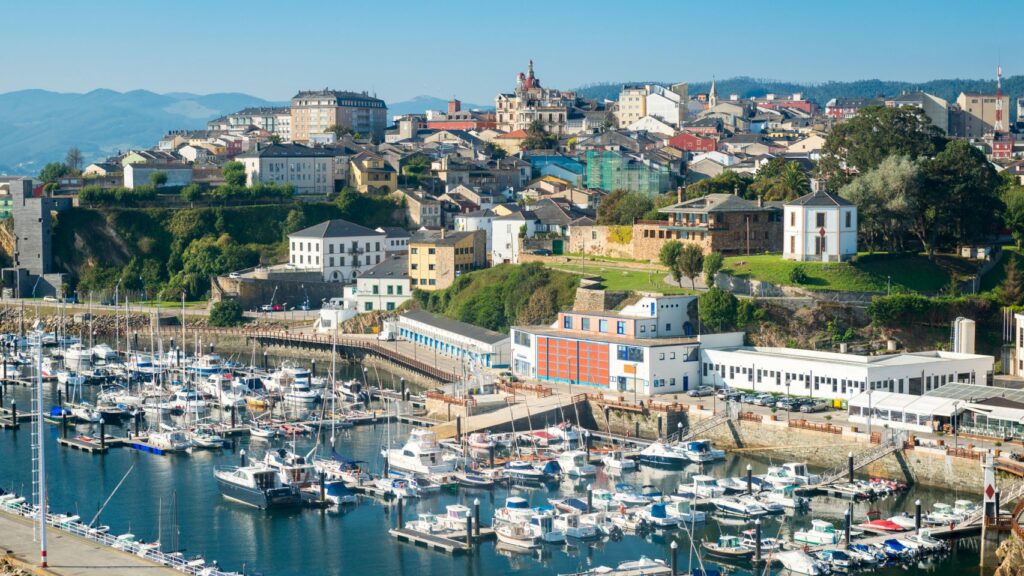
If you had to advise an expat on where they should choose to live in Galicia, what would you tell them? What would be your Top 5 recommended towns and cities?
First thing I will tell them before buying is to rent in the area they want to buy. This will help them to make a better decision. Depending on the lifestyle they want to have, they could choose between different options. Galicia offers you different options but let’s give my top 5 in case this can help any undecided people make up their mind.
Rias Baixas: this will be my first recommendation. First of all, the weather of this area is much better than any other part of Galicia. You have big cities around like Pontevedra or Vigo and you are also next to the sea with amazing beaches along the coastline. It is true that in the summer it gets crowded but still manageable.
Ribadeo area: for me this is a great unknow area, but I like so much Ribadeo. I love it atmosphere since it is a town far from any city, but it maintains its village essence with all the basic needs covered. Moreover, if you are a surf lover it is a fantastic area. It is true that it is not very well connected by public transport. Other places around like Viveiro or Foz are also a great places around.
Coruña: together with Vigo, the largest city in Galicia. If you like living in the city, Coruña is a great place. You have international companies such as Inditex or Estrella Galicia where it may be more feasible for a foreign person to find a job. You have the beach in the city, and it is also well connected by train and airport.
Ourense area: Ourense is very comfortable city to live in, with a great cultural activity and atmosphere of tapas and wines. Being a thermal city and having relatively close to los Cañones del Sil, it is not a bad place to set up a hospitality business.
Ferrol area: if you like nature this area gives you access to beaches and landscapes, such as those of the surroundings of Ferrol, provides a good setting for lovers of the sea and outdoor activities such as hiking, surf, and sailing.
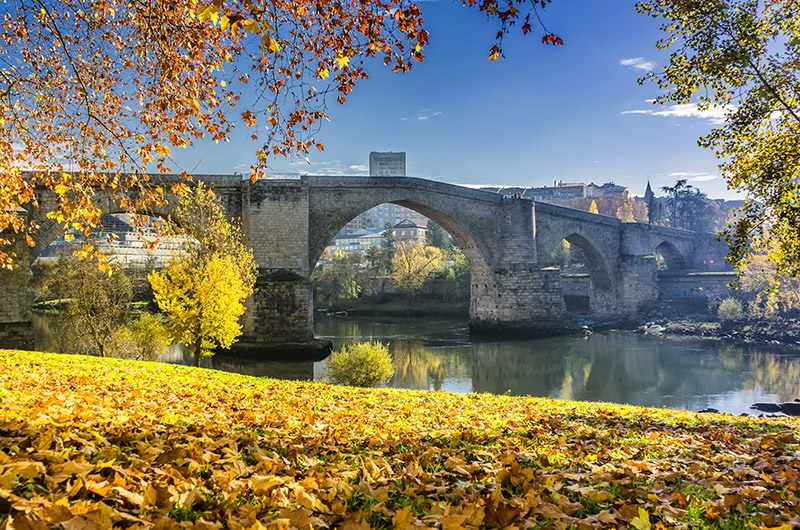

A few useful Resources
Buying Private health insurance in Spain. We recommend Innoinsure, they make it easy and offer different policies through various providers. And you don’t need a Spanish bank account – you can pay with foreign credit cards. More info here.
Spartan FX. Buying a house or car in Spain and need to transfer and exchange a large sum of money? More here.
Wise. For everyday transfers and exchanges of money from your home country. Nobody should be using banks anymore. More here.
Would you recommend hiring the services of a lawyer for the purchase of a property in Spain?
While it’s not mandatory to hire a lawyer, from my experience is highly advisable. The legal process of buying a property involves documentation, contracts and procedures that may be unfamiliar to non-residents. In addition, there is the language barrier, which adds a degree of complexity when it comes to understand all the terms and conditions involved in the operation we are about to undertake. Therefore, I invite any reader to contact me via Whatsapp (+34 618195296), where I will be happy to resolve any doubts or queries free of charge. If the matter needs an in-depth study, we can arrange a call.
Thank you for doing this interview Jesús!
Have a look at Jesús’ website for more information about what he can do for you.
Related: What’s it like living in Muxía? (Galicia)
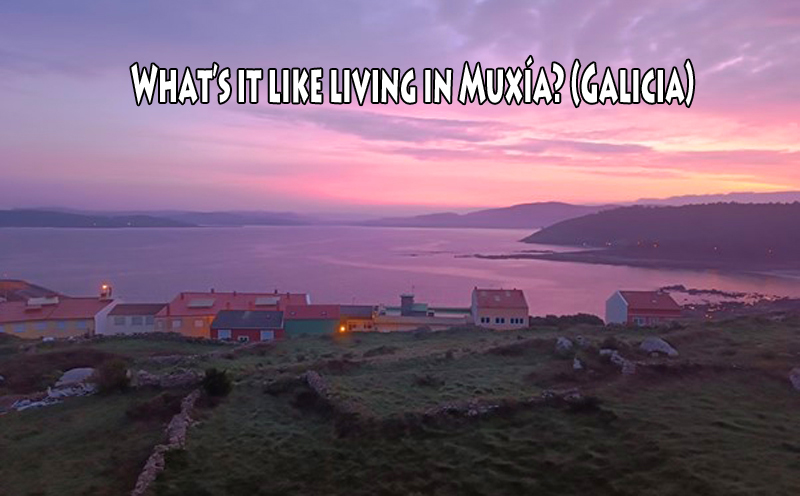
Related: What’s it like living in Galicia?
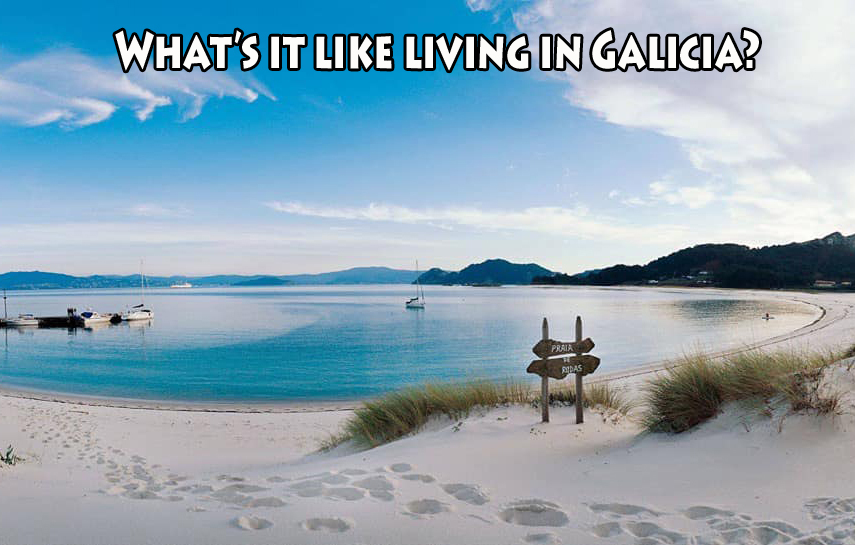

Leave a Reply